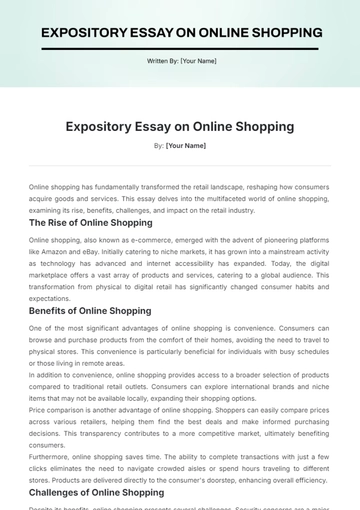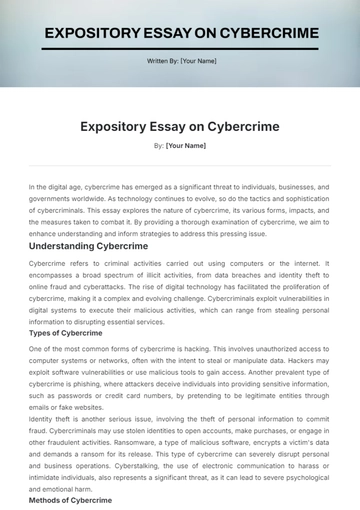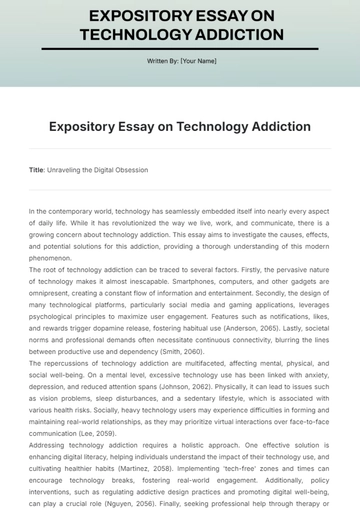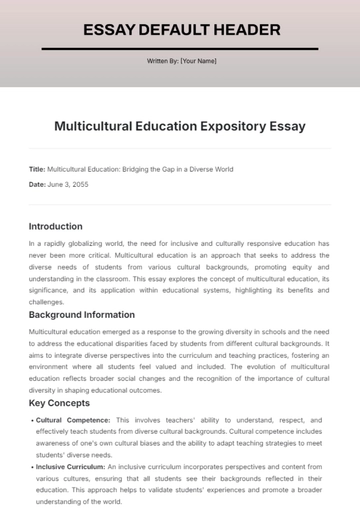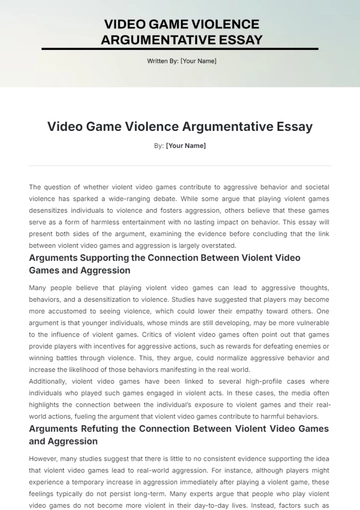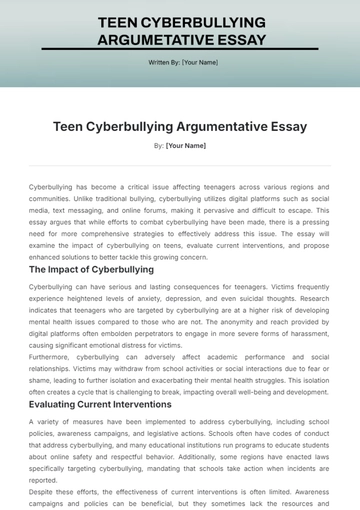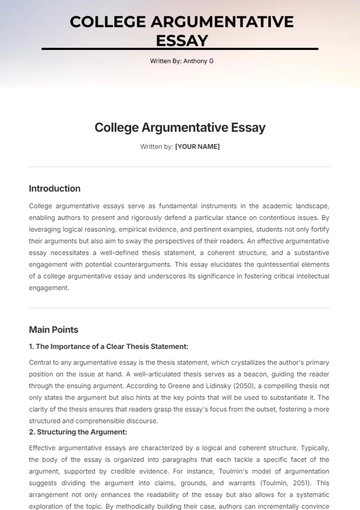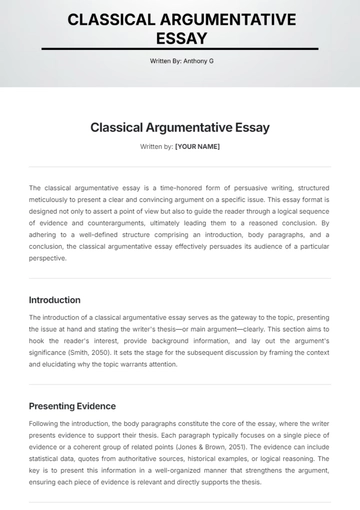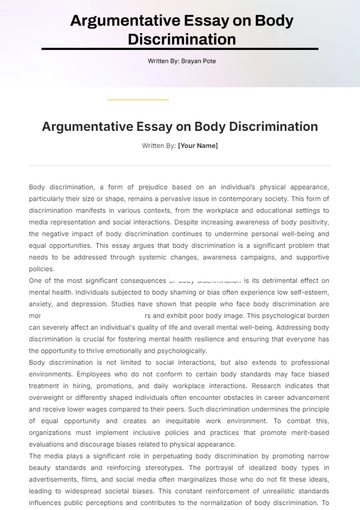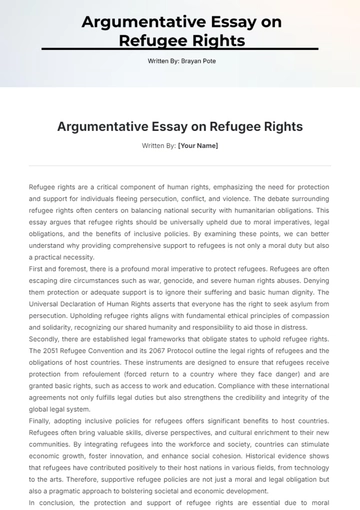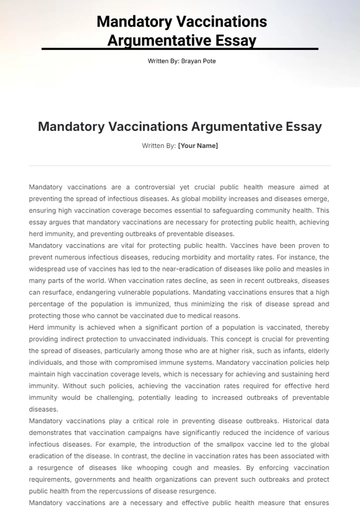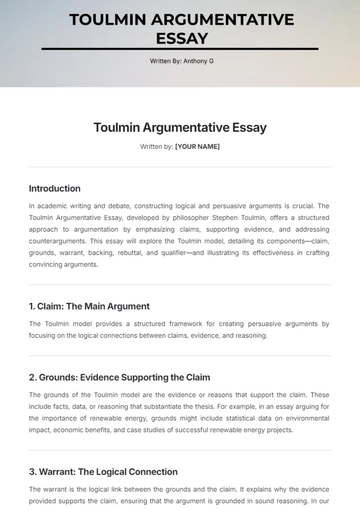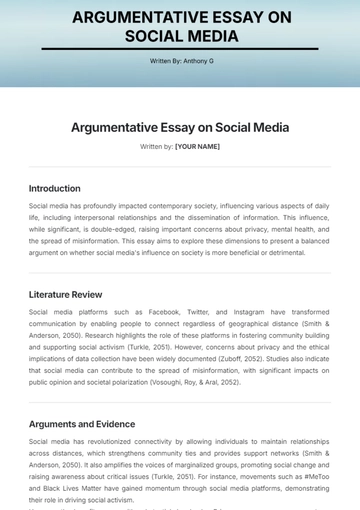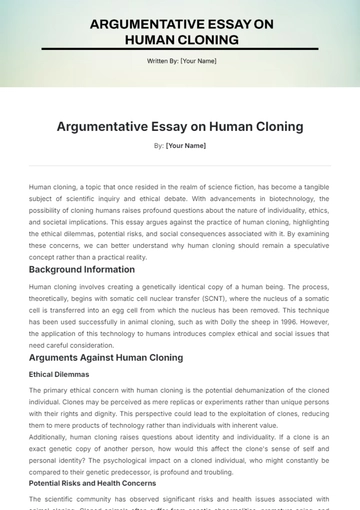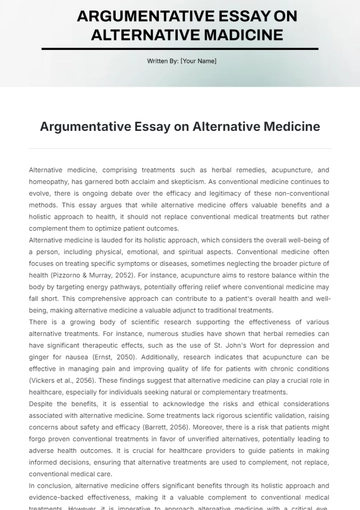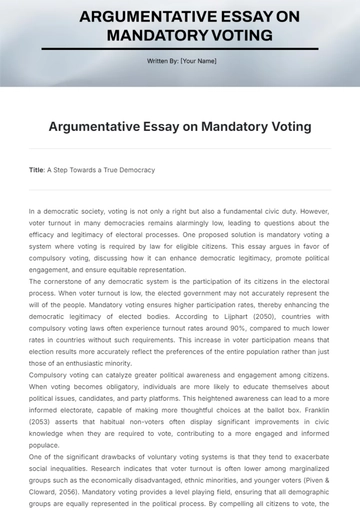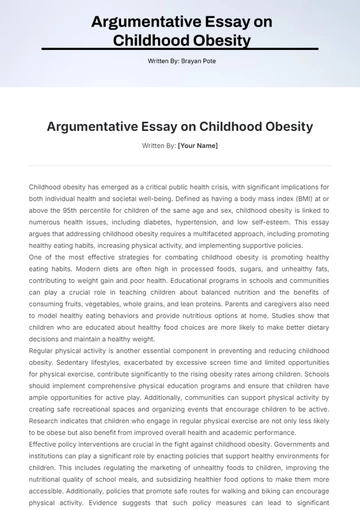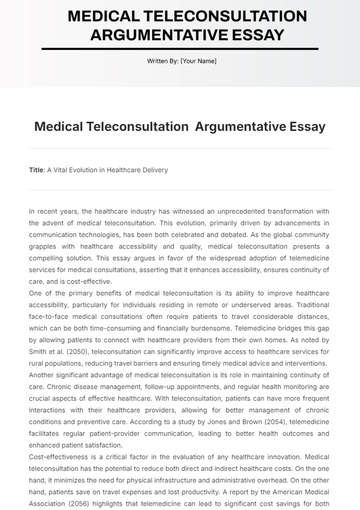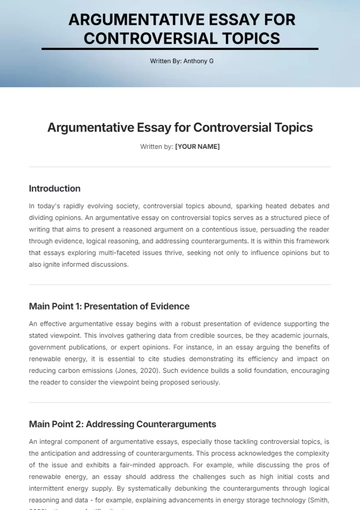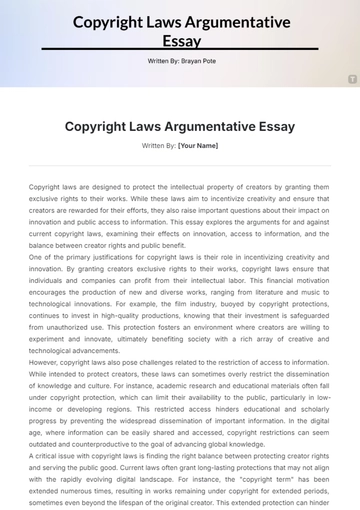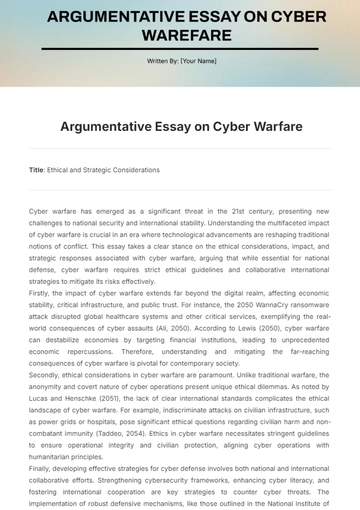Free Argumentative Essay on Human Cloning
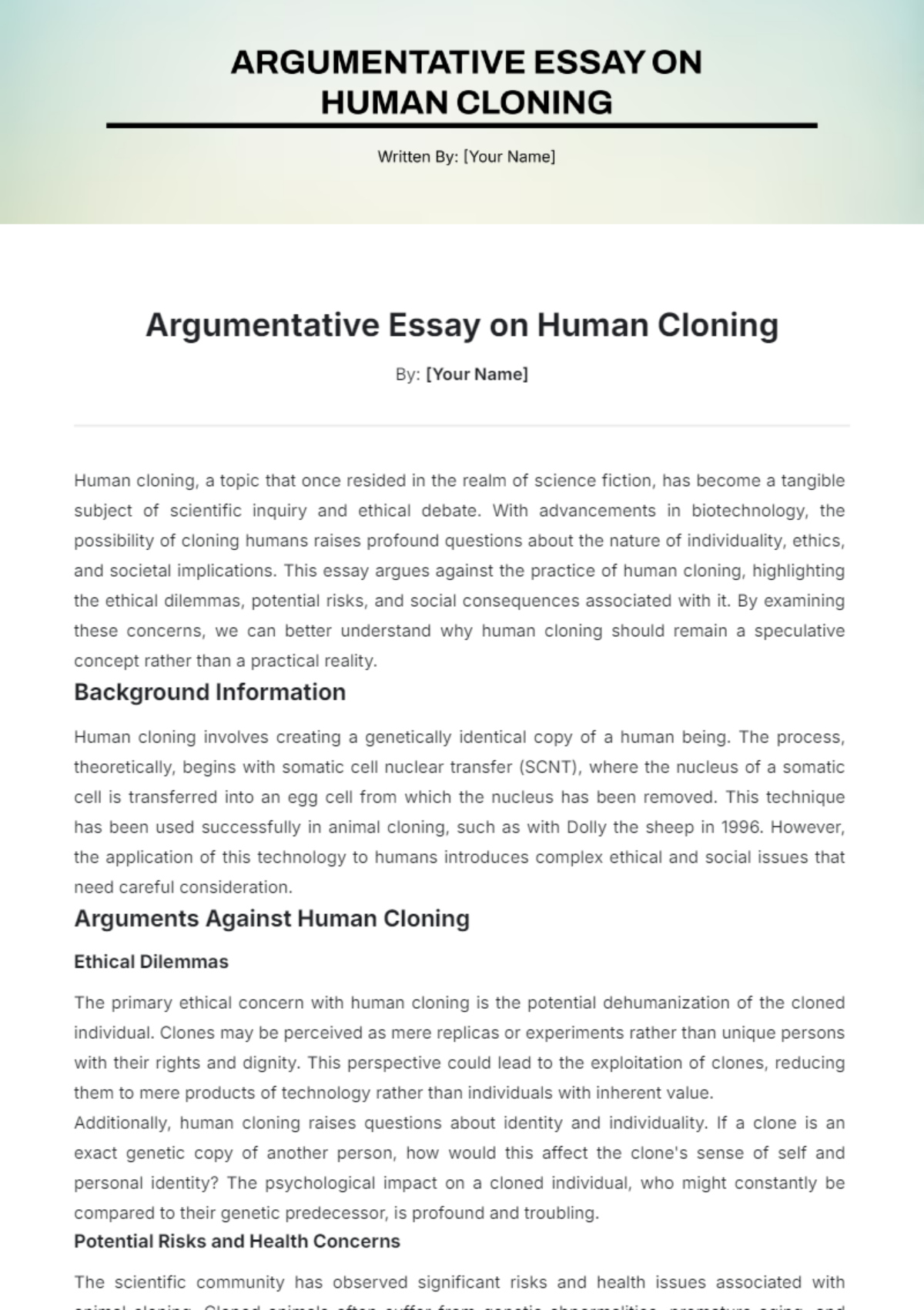
By: [Your Name]
Human cloning, a topic that once resided in the realm of science fiction, has become a tangible subject of scientific inquiry and ethical debate. With advancements in biotechnology, the possibility of cloning humans raises profound questions about the nature of individuality, ethics, and societal implications. This essay argues against the practice of human cloning, highlighting the ethical dilemmas, potential risks, and social consequences associated with it. By examining these concerns, we can better understand why human cloning should remain a speculative concept rather than a practical reality.
Background Information
Human cloning involves creating a genetically identical copy of a human being. The process, theoretically, begins with somatic cell nuclear transfer (SCNT), where the nucleus of a somatic cell is transferred into an egg cell from which the nucleus has been removed. This technique has been used successfully in animal cloning, such as with Dolly the sheep in 1996. However, the application of this technology to humans introduces complex ethical and social issues that need careful consideration.
Arguments Against Human Cloning
Ethical Dilemmas
The primary ethical concern with human cloning is the potential dehumanization of the cloned individual. Clones may be perceived as mere replicas or experiments rather than unique persons with their rights and dignity. This perspective could lead to the exploitation of clones, reducing them to mere products of technology rather than individuals with inherent value.
Additionally, human cloning raises questions about identity and individuality. If a clone is an exact genetic copy of another person, how would this affect the clone's sense of self and personal identity? The psychological impact on a cloned individual, who might constantly be compared to their genetic predecessor, is profound and troubling.
Potential Risks and Health Concerns
The scientific community has observed significant risks and health issues associated with animal cloning. Cloned animals often suffer from genetic abnormalities, premature aging, and other health problems. These risks suggest that human cloning could result in similar or even more severe health issues. The long-term effects of cloning on human health are unknown, making it a dangerous and uncharted territory.
Moreover, cloning technologies are still in their infancy, and their reliability and safety are questionable. Until these technologies can be proven to be both safe and effective, pursuing human cloning could pose unnecessary risks to both individuals and society.
Social Consequences
The social implications of human cloning are far-reaching. Cloning could exacerbate existing inequalities and create new forms of discrimination. For example, cloning might lead to a class of genetically engineered individuals who are perceived as superior or inferior based on their origins. This could deepen social divides and lead to ethical and legal conflicts over the status and rights of cloned individuals.
Furthermore, the possibility of cloning for purposes such as organ harvesting or reproductive engineering introduces troubling scenarios where human life is commodified. Such practices could undermine the ethical principles of respect and human dignity that are central to modern society.
Counterarguments
Proponents of human cloning argue that it could offer significant benefits, such as advances in medical research and treatments for genetic diseases. For example, cloning could potentially allow scientists to study genetic disorders in a controlled environment and develop new therapies. Additionally, cloning could provide a solution for infertility by allowing individuals to have genetically related children.
While these potential benefits are noteworthy, they do not outweigh the ethical and social risks. The scientific advancements that cloning promises can be achieved through other, less controversial means, such as stem cell research and genetic engineering. The potential for misuse and the moral implications of cloning make it an unacceptable option given the current state of technology and ethics.
Conclusion
In conclusion, the practice of human cloning presents significant ethical, health, and social challenges that far outweigh its potential benefits. The dehumanization of cloned individuals, the health risks associated with cloning technologies, and the potential for social inequality and exploitation all contribute to the argument against human cloning. As biotechnology continues to advance, it is crucial to address these concerns and seek alternative approaches that uphold ethical standards and prioritize human dignity. Human cloning should remain a theoretical concept, and our efforts should focus on developing ethical and safe scientific practices that contribute positively to society.
- 100% Customizable, free editor
- Access 1 Million+ Templates, photo’s & graphics
- Download or share as a template
- Click and replace photos, graphics, text, backgrounds
- Resize, crop, AI write & more
- Access advanced editor
The Argumentative Essay on Human Cloning Template from Template.net offers an editable and customizable format, perfect for crafting a well-organized and persuasive essay. Designed for both students and professionals, this template allows you to tailor the content to suit your specific argument and style. Save time while ensuring clarity and impact, with a structure that guides you in presenting a compelling case on the controversial topic of human cloning.




